IELTS MEGA COURSE EXPLORE MORE

The International English Language Testing System (IELTS) is one of the most widely recognized tests for assessing English language skills. If you’re planning to study in an English-speaking country, migrate abroad, or improve your career prospects, IELTS can be your gateway to success. It is designed to evaluate your abilities in four key language areas: Listening, Reading, Writing, and Speaking.
This test is trusted by over 11,000 organizations worldwide, including universities, employers, and immigration authorities, making it a reliable benchmark for your English proficiency. Whether you’re just starting your journey or you’ve been preparing for a while, understanding IELTS is the first step toward achieving your dreams.
IELTS is offered in over 1,600 locations across more than 140 countries, making it accessible to candidates worldwide. The availability of test centers ensures that test-takers can choose a convenient location for their examination. Below are some key countries and regions where IELTS is commonly taken:
USA, Canada, UK, Australia, and New Zealand: These countries are popular destinations of Indians for higher education and migration. Test centers are strategically located in major cities and educational hubs to cater to a large number of applicants.
European Nations: Countries like Germany, France, Italy, and Spain have numerous test centers to accommodate students and professionals seeking to study or work in Europe.
Asian Countries: Nations such as India, China, Japan, South Korea, and others have high demand for IELTS, with multiple centers in urban and semi-urban areas.
Middle Eastern Countries: Countries like the UAE, Saudi Arabia, and Qatar provide IELTS testing facilities to support academic, professional, and migration needs.
To find the nearest test center, visit the official IELTS website and use their "Find a Test Location" tool. This tool allows you to search by country, city, and test type (Academic, General Training, or UKVI).
A detailed breakdown of the IELTS band requirements, education level, and individual modules (Listening, Reading, Writing, and Speaking).
| Country | Education Level | Overall Band | Listening | Reading | Writing | Speaking |
|---|---|---|---|---|---|---|
| Canada | Bachelor's Degree | 6.5 | 6.0 | 6.0 | 6.0 | 6.0 |
| Master's Degree | 6.5 - 7.0 | 6.0 | 6.0 | 6.0 | 6.0 | |
| Diploma Programs | 6.0 | 5.5 | 5.5 | 5.5 | 5.5 | |
| Postgraduate Diploma | 6.5 | 6.0 | 6.0 | 6.0 | 6.0 |
A detailed breakdown of IELTS band requirements for specific programs, focusing on popular and competitive fields like healthcare, engineering, business, law, and education. These requirements may vary based on the university and program tier.
| Program | Overall Band | Listening | Reading | Writing | Speaking | Notes |
|---|---|---|---|---|---|---|
| Nursing | 7.0 | 7.0 | 7.0 | 7.0 | 7.0 | Strong language skills required for patient communication. |
| Engineering (Undergrad) | 6.5 | 6.0 | 6.0 | 6.0 | 6.0 | Top universities may require 7.0 overall. |
| MBA | 7.0 | 6.5 | 6.5 | 6.5 | 6.5 | GMAT or GRE may also be required. |
| Law (JD) | 7.5 | 7.0 | 7.5 | 7.0 | 7.0 | Strong academic and legal language proficiency required. |
| Education (Teaching) | 7.0 | 7.0 | 7.0 | 7.0 | 7.0 | Mandatory for teacher certification programs. |
A detailed breakdown of the IELTS band requirements, education level, and individual modules (Listening, Reading, Writing, and Speaking).
| Country | Education Level | Overall Band | Listening | Reading | Writing | Speaking |
|---|---|---|---|---|---|---|
| USA | Bachelor's Degree | 6.0 - 6.5 | 5.5 - 6.0 | 5.5 - 6.0 | 5.5 - 6.0 | 5.5 - 6.0 |
| Master's Degree | 6.5 - 7.0 | 6.0 - 6.5 | 6.0 - 6.5 | 6.0 - 6.5 | 6.0 - 6.5 | |
| Diploma Programs | 6.0 | 5.5 | 5.5 | 5.5 | 5.5 | |
| Postgraduate Diploma | 6.5 | 6.0 | 6.0 | 6.0 | 6.0 |
A detailed breakdown of IELTS band requirements for specific programs, focusing on popular and competitive fields like healthcare, engineering, business, law, and education. These requirements may vary based on the university and program tier.
| Program | Overall Band | Listening | Reading | Writing | Speaking | Notes |
|---|---|---|---|---|---|---|
| Computer Science (MS) | 6.5 - 7.0 | 6.0 - 6.5 | 6.0 - 6.5 | 6.0 - 6.5 | 6.0 - 6.5 | Top universities like MIT or Stanford may require 7.5+. |
| Nursing | 7.0 - 7.5 | 7.0 | 7.0 | 7.0 | 7.0 | Required for clinical placement and patient interaction. |
| MBA | 6.5 - 7.0 | 6.0 - 6.5 | 6.0 - 6.5 | 6.0 - 6.5 | 6.0 - 6.5 | Competitive schools like Harvard may require higher bands. |
| Law (LLM) | 7.0 | 6.5 | 7.0 | 7.0 | 6.5 | Strong legal language skills essential for success. |
| Medicine | 7.0 - 7.5 | 7.0 | 7.0 | 7.0 | 7.0 | Often required for licensing and international medical programs. |
A detailed breakdown of the IELTS band requirements, education level, and individual modules (Listening, Reading, Writing, and Speaking).
| Country | Education Level | Overall Band | Listening | Reading | Writing | Speaking |
|---|---|---|---|---|---|---|
| Australia | Bachelor's Degree | 6.0 - 6.5 | 6.0 | 6.0 | 6.0 | 6.0 |
| Master's Degree | 6.5 - 7.0 | 6.0 - 6.5 | 6.0 - 6.5 | 6.0 - 6.5 | 6.0 - 6.5 | |
| Diploma Programs | 5.5 - 6.0 | 5.5 | 5.5 | 5.5 | 5.5 | |
| Postgraduate Diploma | 6.5 | 6.0 | 6.0 | 6.0 | 6.0 |
A detailed breakdown of IELTS band requirements for specific programs, focusing on popular and competitive fields like healthcare, engineering, business, law, and education. These requirements may vary based on the university and program tier.
| Program | Overall Band | Listening | Reading | Writing | Speaking | Notes |
|---|---|---|---|---|---|---|
| Nursing | 7.0 | 7.0 | 7.0 | 7.0 | 7.0 | English language is critical for clinical work. |
| Engineering | 6.0 - 6.5 | 6.0 | 6.0 | 6.0 | 6.0 | Engineers Australia requires a strong command of technical language. |
| Law (JD) | 7.0 | 6.5 | 7.0 | 7.0 | 6.5 | Mandatory for professional law practice. |
| Education | 7.5 | 7.0 | 7.0 | 7.0 | 7.0 | Higher requirements for teaching certification and registration. |
| Healthcare (Medicine) | 7.0 - 7.5 | 7.0 | 7.0 | 7.0 | 7.0 | IELTS Academic is mandatory for licensing exams in Australia. |
A detailed breakdown of the IELTS band requirements, education level, and individual modules (Listening, Reading, Writing, and Speaking).
| Country | Education Level | Overall Band | Listening | Reading | Writing | Speaking |
|---|---|---|---|---|---|---|
| UK | Bachelor's Degree | 6.0 - 6.5 | 5.5 - 6.0 | 5.5 - 6.0 | 5.5 - 6.0 | 5.5 - 6.0 |
| Master's Degree | 6.5 - 7.0 | 6.0 - 6.5 | 6.0 - 6.5 | 6.0 - 6.5 | 6.0 - 6.5 | |
| Diploma Programs | 5.5 - 6.0 | 5.5 | 5.5 | 5.5 | 5.5 | |
| Postgraduate Diploma | 6.5 | 6.0 | 6.0 | 6.0 | 6.0 |
A detailed breakdown of IELTS band requirements for specific programs, focusing on popular and competitive fields like healthcare, engineering, business, law, and education. These requirements may vary based on the university and program tier.
| Program | Overall Band | Listening | Reading | Writing | Speaking | Notes |
|---|---|---|---|---|---|---|
| MBA | 6.5 - 7.0 | 6.0 - 6.5 | 6.0 - 6.5 | 6.0 - 6.5 | 6.0 - 6.5 | Competitive business schools like Oxford or LSE may require 7.5+. |
| Engineering (Undergrad) | 6.5 | 6.0 | 6.0 | 6.0 | 6.0 | Higher for advanced programs. |
| Nursing | 7.0 | 7.0 | 7.0 | 7.0 | 7.0 | Required for NMC registration in the UK. |
| Education (PGCE) | 7.0 - 7.5 | 6.5 - 7.0 | 7.0 | 7.0 | 7.0 | Teaching certifications demand excellent English proficiency. |
| Law (LLM) | 7.0 - 7.5 | 6.5 - 7.0 | 7.0 - 7.5 | 7.0 | 6.5 | Required for international legal studies. |
A detailed breakdown of the IELTS band requirements, education level, and individual modules (Listening, Reading, Writing, and Speaking).
| Country | Education Level | Overall Band | Listening | Reading | Writing | Speaking |
|---|---|---|---|---|---|---|
| New Zealand | Bachelor's Degree | 6.0 - 6.5 | 5.5 - 6.0 | 5.5 - 6.0 | 5.5 - 6.0 | 5.5 - 6.0 |
| Master's Degree | 6.5 - 7.0 | 6.0 - 6.5 | 6.0 - 6.5 | 6.0 - 6.5 | 6.0 - 6.5 | |
| Diploma Programs | 6.0 | 5.5 | 5.5 | 5.5 | 5.5 | |
| Postgraduate Diploma | 6.5 | 6.0 | 6.0 | 6.0 | 6.0 |
A detailed breakdown of IELTS band requirements for specific programs, focusing on popular and competitive fields like healthcare, engineering, business, law, and education. These requirements may vary based on the university and program tier.
| Program | Overall Band | Listening | Reading | Writing | Speaking | Notes |
|---|---|---|---|---|---|---|
| Nursing | 7.0 | 7.0 | 7.0 | 7.0 | 7.0 | Required for professional registration. |
| Business (Undergrad) | 6.0 | 5.5 | 5.5 | 5.5 | 5.5 | Some institutions may require 6.5 for competitive programs. |
| Education | 7.0 | 6.5 | 6.5 | 6.5 | 6.5 | Compulsory for teaching programs and certifications. |
| Engineering | 6.5 | 6.0 | 6.0 | 6.0 | 6.0 | Required for undergraduate and postgraduate programs. |
| Law | 7.0 | 6.5 | 6.5 | 6.5 | 6.5 | Strong academic English required for legal studies. |
The IELTS test is open to a wide range of candidates, making it one of the most inclusive language proficiency tests available. Here’s who can take it:
Age Requirement: It is recommended for individuals aged 16 and above. While there is no strict age limit, younger candidates are advised to consider their readiness for the test.
Purpose: IELTS is suitable for students aiming to study abroad, professionals seeking global career opportunities, and individuals planning to migrate to English-speaking countries.
Eligibility: There are no specific academic qualifications required to take the test, making it accessible to anyone proficient in English.
IELTS offers two main types of tests to cater to different goals:
IELTS Academic
If you’re applying to a university or professional institution where English is the medium of instruction, this is the test for you.
Your ability to handle academic English in Listening, Reading, Writing, and speaking contexts.
IELTS General Training
Ideal for those planning to migrate to English-speaking countries like Canada, Australia, or the UK, or for those seeking work or training opportunities.
Your ability to use English in everyday practical situations, including workplace communication.
| Feature | Academic | General Training |
|---|---|---|
| Purpose | For higher education and professional registration. | For migration, work, or training programs. |
| Reading Module | Focuses on complex academic texts and journals. | Includes general interest texts and workplace scenarios. |
| Writing Module | Task 1: Describe a chart, graph, or diagram. Task 2: Essay. | Task 1: Write a letter. Task 2: Essay. |
| Listening Module | Same format for both. | Same format for both. |
| Speaking Module | Same format for both. | Same format for both. |
Format: Four recordings of native English speakers, followed by 40 questions.
Time: Appx. 30 minutes (Audio play) + 10 minutes for transferring answers from question paper to answer sheet (applicable in pen and paper based test only).
Skills Tested: Understanding ideas, opinions, and information from spoken texts.

Recording 1: A conversation between two people set in an everyday social context (e.g., a speech about hotel booking, tour inquiry).
Recording 2: A monologue set in an everyday social context (e.g., a speech about local facilities, event management).
Recording 3: A conversation between minimum two and up to four people set in an educational or training context (e.g., a discussion about academic project).
Recording 4: A monologue on an academic subject (e.g., a university lecture).
Multiple Choice Questions: Select the correct option from three or four choices.
Matching Information: Match a list of items from the recording to options in the question.
Plan, Map, or Diagram Labelling: Identify labels for a visual representation based on the recording.
Form, Note, Table, Flow-chart, or Summary Completion: Fill in missing words in structured formats.
Sentence Completion: Complete sentences using a specific number of words.
Short Answer Questions: Answer questions briefly using information from the recording.
Select from a List: Choose correct answers from a provided list of options.
Classification: Categorize information or opinions into predefined groups.
Pick from Multiple Pictures: Identify the correct visual option matching the recording.
The IELTS Listening test is scored based on the number of correct answers out of 40 questions. Each correct answer contributes one mark, and your total raw score is converted into a band score ranging from 1 (non-user) to 9 (expert user). Below is the approximate breakdown of band scores according to the number of correct answers:
| Band Score | Raw Score (Number of Correct Answers) | Descriptor |
|---|---|---|
| 9 | 39-40 | Expert User: Fully operational command of the language. You understand detailed information, follow complex arguments, and identify speakers’ attitudes perfectly. |
| 8.5 | 37-38 | Very Good User: Excellent understanding with occasional lapses. You handle high-level detail and nuance effectively. |
| 8 | 35-36 | Very Good User: Consistently demonstrates understanding of detailed and complex information, with rare misinterpretation. |
| 7.5 | 32-34 | Good User: Generally handles listening tasks well but may miss subtle details or nuanced meanings. |
| 7 | 30-31 | Good User: Strong grasp of the content, with occasional mistakes in understanding finer details or unfamiliar expressions. |
| 6.5 | 26-29 | Competent User: Understands most standard texts but may struggle with dense or fast-paced dialogues. |
| 6 | 23-25 | Competent User: Basic understanding of main ideas but may miss specific information or complex arguments. |
| 5.5 | 18-22 | Modest User: Can follow general meaning but often misses critical points or misunderstands subtle cues. |
| 5 | 16-17 | Modest User: Limited understanding of the conversation, with frequent difficulty in grasping precise details. |
| 4.5 | 13-15 | Limited User: Understands only basic ideas; significant difficulty with complex or fast-paced sections. |
| 4 | 10-12 | Limited User: Struggles to follow even straightforward texts. Misunderstands key points frequently. |
| 3.5 | 7-9 | Extremely Limited User: Can recognize only basic words or phrases with limited comprehension. |
| 3 | 5-6 | Extremely Limited User:Severe difficulty in understanding even simple statements. |
| 2 | 2-4 | Intermittent User: Limited to isolated words and phrases. Cannot comprehend sentences. |
| 1 | 0-1 | Non-User: No ability to understand the spoken language. |
The Listening test assesses:
Understanding of Main Ideas: Can you identify the speaker's primary focus or argument?
Detail Recognition: Are you able to pick up on specific information such as numbers, names, or directions?
Understanding Opinions: Can you identify attitudes, opinions, and implications from the tone and language?
Ability to Follow Argument Development: Do you follow the structure of the discussion or narrative effectively?
Understanding of Main Ideas: Can you identify the speaker's primary focus or argument?
Practice Active Listening: Regularly listen to English podcasts, news, and lectures to build comprehension skills.
Focus on Keywords: Pay attention to transitional phrases and keywords that indicate shifts in topic or speaker opinion.
Note-Taking: Develop a shorthand for taking quick and effective notes during practice sessions.
Mock Tests: Take full-length practice tests under timed conditions to simulate the real exam experience.
Academic:
Format: 40 questions based on three long passages from books, journals, or academic articles.
Passages: Three long texts focusing on detailed comprehension of academic material.

Multiple Choice Questions: Choose the correct answer from given options.
Identifying Information (True/False/Not Given): Determine if statements match the information in the text.
Identifying Writer’s Views/Claims (Yes/No/Not Given): Decide if opinions or claims align with those of the writer.
Matching Information: Locate specific details in the text and match them to questions.
Matching Headings: Match headings to paragraphs or sections of the text.
Matching Features: Match characteristics to people, places, or things in the passage.
Matching Sentence Endings: Complete sentences by selecting the correct ending.
Sentence Completion: Fill in blanks with words from the passage.
Summary, Note, Table, or Flow-chart Completion: Complete summaries or tables using words from the text or a word list.
Diagram Label Completion: Label diagrams based on textual information.
Short Answer Questions: Provide brief answers to questions using information from the passage.
Format: 40 questions based on a variety of texts, including advertisements, workplace documents, and general articles.
Passages: Section 1 has two or three short texts, Section 2 includes two texts related to work contexts, and Section 3 features one long passage.
Types of Questions: Same as Academic.
Time: 60 minutes.
The IELTS Reading test is scored similarly to Listening, based on the number of correct answers out of 40 questions. Each correct answer earns one mark, and the raw score is converted into a band score. The score ranges differ slightly between Academic and General Training due to variations in text complexity. Below is the approximate score breakdown for each band:
| Band Score | Raw Score (Number of Correct Answers) | Descriptor |
|---|---|---|
| 9 | 39-40 | Expert User: Fully operational command of English. Understands detailed and complex passages, grasping main ideas, details, and implied meanings perfectly. |
| 8.5 | 37-38 | Very Good User: Excellent comprehension with rare lapses. Handles high-level academic material with ease. |
| 8 | 35-36 | Very Good User: Consistently understands complex academic texts, with occasional difficulty in extremely nuanced content. |
| 7.5 | 33-34 | Good User: Solid understanding of academic material, missing only subtle or very complex ideas. |
| 7 | 30-32 | Good User: Competent in reading and understanding academic texts, with minor gaps in dense or unfamiliar material. |
| 6.5 | 27-29 | Competent User: Can handle academic texts with some limitations in processing dense, abstract, or fast-changing information. |
| 6 | 23-26 | Competent User: Understands most academic texts but often misses finer details or implied meanings. |
| 5.5 | 19-22 | Modest User: Handles basic ideas but struggles with complex passages and abstract concepts. |
| 5 | 15-18 | Modest User: Limited understanding of the text, with frequent errors in grasping meaning or key details. |
| 4.5 | 13-14 | Limited User: Can recognize basic ideas but often misunderstands or skips important information. |
| 4 | 10-12 | Limited User: Struggles with understanding even straightforward texts. |
| 3.5 | 8-9 | Extremely Limited User: Recognizes only isolated words and phrases in simple passages. |
| 3 | 6-7 | Extremely Limited User: Severe difficulty comprehending even simple sentences or topics. |
| 2 | 3-5 | Intermittent User: Can only match isolated words or phrases to basic meanings. |
| 1 | 0-2 | Non-User: No ability to understand written English. |
| Band Score | Raw Score (Number of Correct Answers) | Descriptor |
|---|---|---|
| 9 | 40 | Expert User: Perfectly understands all texts, including details, nuances, and implied meanings. |
| 8.5 | 39 | Very Good User: Excellent comprehension of all materials, with rare lapses in finer details. |
| 8 | 37-38 | Very Good User: Strong ability to understand all text types, with occasional gaps in highly nuanced or complex areas. |
| 7.5 | 36 | Good User: Consistently accurate understanding, with minor errors in subtle or complex passages. |
| 7 | 34-35 | Good User: Able to grasp meaning and details of general texts well, with occasional gaps in less familiar content. |
| 6.5 | 32-33 | Competent User: Can follow most texts effectively but may struggle with abstract or dense sections. |
| 6 | 30-31 | Competent User: Understands general texts adequately, with frequent errors in complex areas. |
| 5.5 | 27-29 | Modest User: Handles straightforward texts, but struggles with workplace or detailed general texts. |
| 5 | 23-26 | Modest User: Can understand basic concepts but misses most complex or nuanced information. |
| 4.5 | 20-22 | Limited User: Significant gaps in comprehension, even in simple texts. |
| 4 | 16-19 | Limited User: Understands only basic information from simple texts; frequent misinterpretations. |
| 3.5 | 12-15 | Extremely Limited User: Can recognize basic concepts but fails to grasp overall meaning. |
| 3 | 9-11 | Extremely Limited User: Struggles to understand even elementary language. |
| 2 | 5-8 | Intermittent User: Can only grasp isolated words or very basic phrases. |
| 1 | 0-4 | Non-User: No ability to understand written texts. |
The Reading test evaluates your ability to:
Understand General and Specific Ideas: Identify main ideas and specific details from the text.
Infer Meaning: Recognize implied information and interpret tone, attitude, or purpose.
Follow Argument Development: Understand the logical structure and progression of ideas.
Scan for Information: Locate key details quickly within passages.
Skimming and Scanning: Practice quick reading strategies to locate key information efficiently.
Practice Timed Tests: Train to complete all 40 questions within 60 minutes.
Understand Question Types: Familiarize yourself with tasks like True/False/Not Given, matching headings, and sentence completion.
Improve Vocabulary: Build a strong vocabulary for understanding synonyms and paraphrased ideas.
Review Your Answers: Use any extra time to double-check for mistakes.
Writing Module: Extended Content
The IELTS Writing module evaluates your ability to communicate effectively in written English through structured responses. Both Academic and General Training versions include two tasks, each testing different writing skills.
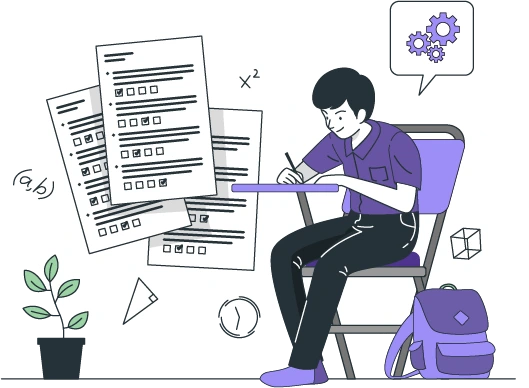
In Task 1 of Academic Writing requires you to write a 150-word report; you must analyze visual data and present a clear summary, description, or explanation.
Types of Questions for Task 1:
Pie Charts: Compare proportions of categories in circular graphs.
Bar Graphs: Compare categories or trends using rectangular bars.
Line Graphs: Describe trends over time using line charts.
Tables: Analyze and summarize data presented in a table format.
Process Diagrams: Explain a sequence of events or processes (e.g., how something is manufactured).
Map Descriptions: Compare changes in a location over time or describe features of a specific area.
Combination Graphs: Analyze visuals that combine two or more data types (e.g., a bar graph with a line graph).
Task 2 requires you to write a 250-word essay responding to a point of view, problem, or argument.
Types of Essays for Task 2:
Opinion Essays (Agree/Disagree):
State whether you agree or disagree with a given statement and support your position with examples.
Example: "Some people believe online learning is more effective than traditional classroom learning. To what extent do you agree or disagree?"
Discussion Essays:
Present both sides of an argument and give your opinion.
Example: "Some people think advertisements encourage us to buy unnecessary things. Others believe advertisements provide useful information. Discuss both views and give your opinion."
Problem-Solution Essays:
Identify a problem and propose solutions.
Example: "Many cities around the world are facing traffic congestion. What are the causes, and how can this problem be solved?"
Advantage-Disadvantage Essays:
Discuss the benefits and drawbacks of a given topic.
Example: "What are the advantages and disadvantages of living in a big city?"
Two-Part Questions (Direct Questions):
Address two related questions on a single topic.
Example: "Nowadays, more people are working remotely. Why is this happening, and is it a positive or negative development?"
Education: "Should education be free for all students?"
Environment: "How can governments reduce air pollution?"
Technology: "Is technology making people less social?"
Health: "What are the benefits of a balanced diet?"
Society: "How can cities tackle homelessness?"
This task requires writing a letter of at least 150 words, based on a given situation.
Types of Letters for Task 1:
Formal Letters
For professional purposes or addressing someone in authority.
Example: Writing to a manager to request leave or to a service provider to complain about a product.
Semi-Formal Letters
To someone you know but in a professional or respectful tone.
Example: Writing to a landlord to request repairs or to a colleague about a work-related matter.
Informal Letters
To friends or family members in a casual tone.
Example: Writing to a friend to invite them to a party or to share your recent experience.
Common Situations for Letters:
Requesting information.
Making complaints or suggestions.
Explaining a problem or situation.
Expressing gratitude or apologies.
Making invitations or responding to them.
The essay tasks in General Training follow the same format and types as Academic essays.
Examples of General Training Essay Topics:
Work "Is it better to work for yourself or for a company?"
Family "Should parents limit their children’s screen time?
Travel: "Why do people prefer traveling abroad rather than exploring their own country?"
Lifestyle: "What are the pros and cons of a vegetarian diet?"
Community: "How can communities support the elderly?
Task 1: Spend 20 minutes (minimum 150 words).
Task 2: Spend 40 minutes (minimum 250 words).
Your writing score depends on these four criteria, equally weighted:
Task Achievement (Task 1) / Task Response (Task 2):
How well you fulfill the task requirements.
Band 9: Fully addresses all parts of the task with insightful ideas and examples.
Band 6: Addresses the task but misses some parts or lacks development.
Band 4: Partially addresses the task; ideas are unclear or repetitive.
Coherence and Cohesion:
How logically ideas are organized and connected.
Band 9: : Fully cohesive with smooth transitions; paragraphs are well-structured.
Band 6: Ideas are organized but may lack clear transitions or proper paragraphing.
Band 4: Disjointed ideas with poor or inconsistent flow.
Lexical Resource:
Vocabulary range and accuracy.
Band 9: Wide range of precise vocabulary used naturally and accurately.
Band 6: Adequate vocabulary with occasional errors or repetition.
Band 4: Limited vocabulary with frequent errors and awkward phrasing.
Grammatical Range and Accuracy:
Variety and correctness of sentence structures.
Band 9: Wide range of complex structures used flawlessly.
Band 6: Adequate vocabulary with occasional errors or repetition.
Band 4: Simple sentences dominate, with frequent grammatical mistakes.
Band 9 : "The graph illustrates a steady increase in sales over a decade, reflecting an exponential growth trend."
Band 6: "The graph shows sales increase over time. It grows fast."
Band 4: "Sales go up over years. It’s growing big."
IELTS Speaking Module: Detailed Analysis
The IELTS Speaking test is a face-to-face interview conducted by a certified examiner. It is divided into three parts and lasts for 11–14 minutes. Below is an extended analysis covering all aspects of the Speaking module, including the format, preparation strategies, band descriptors, and score differentiation.

The test is divided into three distinct parts, each designed to assess different speaking skills:
Duration :
4–5 minutes.
Structure:
Questions are asked about familiar topics like hobbies, daily routines, family, work, or studies.
Objective:
To make the candidate comfortable and assess their ability to speak on familiar topics.
Tips:
Avoid memorized responses, as the examiner values natural communication.
Duration :
3–4 minutes.
Speaking Time :
1–2 minutes to speak.
Structure:
They are provided with a pencil and paper to make notes during the preparation time.
Objective:
To assess the ability to organize thoughts, present ideas fluently, and provide detailed responses.
Tips for Cue Card:
Use linking words and phrases to maintain fluency and coherence
Duration :
4–5 minutes.
Structure:
The questions are more complex and require critical thinking.
Objective:
To evaluate the candidate’s ability to express opinions, justify arguments, and discuss broader issues.
Tips:
Be ready to engage in a conversational style with the examiner.
The IELTS Speaking module assesses the following key skills:
Fluency and Coherence:
Logical flow of ideas with appropriate use of linking words.
Pronunciation:
Ability to be easily understood, even with a regional accent.
Lexical Resource:
Ability to paraphrase effectively.
Grammatical Range and Accuracy:
Accuracy in tenses, subject-verb agreement, and other grammatical aspects.
| Band Score | Descriptor |
|---|---|
| 9 | Speaks fluently with only rare repetition or hesitation; fully coherent. |
| 8 | Speaks fluently with minor hesitation; well-organized ideas and linking words. |
| 7 | Occasional pauses and repetition; logical but minor lapses in coherence. |
| 6 | Noticeable hesitation; sometimes struggles to connect ideas smoothly. |
| 5 | Frequent pauses; ideas are not well-organized or fully developed. |
| Band Score | Descriptor |
|---|---|
| 9 | Wide range of vocabulary with precise word choice; effectively uses idiomatic expressions. |
| 8 | Varied vocabulary with occasional minor inaccuracies; paraphrases effectively. |
| 7 | Adequate vocabulary with occasional repetition; uses some idiomatic phrases. |
| 6 | Limited vocabulary; occasional errors or repetition; struggles to paraphrase. |
| 5 | Very basic vocabulary; frequent repetition and limited ability to convey precise meaning. |
| Band Score | Descriptor |
|---|---|
| 9 | Clear and natural pronunciation; effective use of intonation and stress. |
| 8 | Pronunciation is clear with minor lapses; intonation is appropriate. |
| 7 | Generally clear pronunciation with occasional strain; intonation patterns may be inconsistent. |
| 6 | Pronunciation causes some difficulty; intonation and stress are often incorrect. |
| 5 | Frequent mispronunciations make it hard to understand. |
| Band Score | Descriptor |
|---|---|
| 9 | Uses a wide variety of structures with full accuracy. |
| 8 | Uses a variety of structures with occasional errors that do not affect meaning. |
| 7 | Good range of structures but some errors in complex sentences. |
| 6 | Limited variety of structures with noticeable errors. |
| 5 | Very basic sentence structures with frequent grammatical errors. |
Practice Speaking Regularly:
Record your answers and evaluate them for fluency, coherence, and pronunciation.
Expand Vocabulary:
Practice paraphrasing sentences to avoid repetition.
Focus on Pronunciation:
Listen to English podcasts or watch videos to understand intonation patterns.
Develop Critical Thinking:
Practice discussing abstract topics and justifying your arguments.
Simulate Test Conditions:
Work with a tutor or partner to simulate the interactive format of the test.
Paper-Based Test : Handwritten answers using pencil and paper.
Computer-Based Test: Typing answers on a computer.
Speaking Test: Conducted face-to-face with an examiner for both formats.
The IELTS exam is conducted over two days:
Day 1: Listening, Reading, and Writing (LRW) modules are conducted on the same day.
Day 2 The Speaking test may be scheduled either before or after the LRW exam, depending on availability and scheduling.
Booking your IELTS exam date has never been so easier! Follow these steps:
Scan the QR Code : Use the QR code provided by Oops! Study.
Passport : Keep your passport with you as you will need to enter your personal details as per your passport.
Fill the Form on IDP Website : Enter your details and select your preferred test date and location.
Make Payment: Complete your booking by paying the test fee online. Multiple payment options are available (e.g. Credit card, Debit card and UPI).
Capacity : The number of students in a hall varies by test center and demand but typically ranges from 20 to 100 candidates. Smaller halls might have fewer students, while larger halls may accommodate more.
Seating Arrangement : Candidates are seated at individual desks or tables, with ample spacing (usually 1.2–1.5 meters) to ensure privacy and minimize distractions.
Identification Numbers : Each desk is labeled with a candidate number corresponding to your registration details.
Supervised Environment : Invigilators are present throughout the hall to oversee the exam, provide instructions, and monitor for compliance with test regulations.
Silence : The hall is extremely quiet to allow candidates to focus, with only the invigilators giving instructions at the start and end of each section.
Lighting & Ventilation : The hall is well-lit and ventilated to provide a comfortable environment.
Clocks : Large clocks or wall-mounted digital timers are visible for timekeeping.
Audio Equipment : For the listening test, high-quality speakers or headphones are provided to ensure all candidates can clearly hear the recordings.
Entry & Verification :
Candidates arrive early for identity verification, usually involving a passport and a biometric scan (photo and fingerprint).
Personal belongings are stored in lockers or a secure area.
Seating :
Candidates are directed to their assigned seats by invigilators.
A short briefing is provided about the test rules and procedures.
Examination :
Writing (60 minutes) : Essay and report/letter tasks are completed in silence.
Reading (60 minutes) : Candidates work on paper-based or computer-based questions.
Listening (30-40 minutes) : Audio played over speakers or headphones.
Speaking Test : Conducted separately in a one-on-one session, within a 7-day window.
CCTV cameras are often installed to monitor the hall.
Invigilators ensure no unauthorized items or behaviors are present.
Random checks may occur during the test to ensure compliance with rules.
In computer-based IELTS exams
To ensure a smooth experience on test day, it is essential to bring the following items:
Mandatory Documents: Your original passport or a government-approved ID (the same one used during registration). Without this document, you will not be allowed to enter the exam hall.
Stationery: For the paper-based test, bring pens, pencils, and erasers. These are not required for the computer-delivered test, as the equipment is provided.
Water Bottle: A transparent bottle without labels is allowed. Ensure it is easy to handle to avoid disruptions.
To ensure a smooth experience on test day, it is essential to bring the following items:
Electronic devices, including mobile phones, smartwatches, and calculators.
Bags, books, notes, and other personal belongings, which must be stored in designated areas outside the exam hall.
Food and beverages other than water.
The total test duration is approximately 2 hours and 45 minutes , covering Listening, Reading, and Writing in one sitting.
No official breaks are provided during these sections. Candidates are expected to manage their time accordingly.
Restroom Breaks: If you need to use the restroom, you may do so, but the test clock will continue to run. You must seek permission and will be escorted by staff to ensure test security.
Speaking Test: This section is scheduled separately and may occur on the same day or within a week before or after the main test.
Verification : Present your valid ID (original passport) and test booking receipt.
Seating : Arrive at least 30 - 45 minutes early to locate your designated seat.
Instructions : Follow the invigilator’s instructions carefully.
Environment : A quiet and controlled setting to ensure your focus on the test.
If you’ve taken the IELTS test and feel your scores don’t reflect your performance, you can request a re-evaluation. This process, called Enquiry on Results (EOR), ensures your test is rechecked by senior examiners. Below is a detailed guide tailored to Indian candidates.
You can request a re-evaluation for one, multiple, or all modules (Listening, Reading, Writing, and Speaking).
The EOR process applies to both IELTS Academic and IELTS General Training.
You must apply within 6 weeks (42 days) of your test date.
The rechecking fee in India is INR 12,000 (including GST) as of 2025.
If your scores change after re-evaluation, this fee will be fully refunded.
Payment can be made online through your test center’s website or offline at the test center.
Here’s the step-by-step process to apply for the EOR in India:
Step 1: Visit the IELTS Website
Go to the website of your test provider:
IDP India: https://www.idpielts.me
Log in to your account using the credentials you used to register for the test.
Step 2: Fill Out the EOR Application Form
Provide the following details:
Your full name (as per your ID proof).
Your candidate number (available on your Test Report Form).
Your test date and location.
Specify the modules (Listening, Reading, Writing, or Speaking) you want to be re-evaluated.
Step 3: Make Payment
Pay the EOR fee of INR 12,000.
Payment modes:
Online: Debit/Credit card or net banking.
Offline: At the test center via cash or bank transfer (confirm with your test center).
Step 4: Submit Your Request
After completing the form and payment, your application will be processed.
You will receive a confirmation email with the details of your re-evaluation request.
Re-Evaluation Process
Writing and Speaking modules are manually rechecked by senior examiners.
Listening and Reading modules are rechecked electronically, as they have definitive answers.
Processing Time
The rechecking process takes 2 to 21 days from the date of submission.
You will receive updates on the status of your request via email.
No Change in Scores: Your original scores remain the same, and no refund is issued.
Change in Scores: If your score increases in any module:
A new Test Report Form (TRF) will be issued.
The EOR fee (INR 12,000) will be refunded.
You will be informed of the decision via email.
Request EOR Wisely:
Writing and Speaking modules involve subjective evaluation, so they are more likely to see changes.
Listening and Reading modules have definitive answers, so changes in scores are rare.
Refund Timeline:
Refunds for score changes are usually processed within 2-4 weeks after the re-evaluation.
Customer Support:
IDP candidates can contact customercare.india@idp.com
The IELTS One Skill Retake is a feature offered by IELTS to allow test-takers to retake only one of the four modules (Listening, Reading, Writing, or Speaking) if they wish to improve their score in that particular skill. This is an excellent opportunity for candidates who have achieved their desired band score in most modules but need to boost their performance in just one area.
Purpose : This feature allows candidates to retake one module of the IELTS test instead of retaking the entire test.
Modules Covered : Listening, Reading, Writing, or Speaking.
Benefit : Saves time, effort, and money for candidates who performed well in three modules but need improvement in one specific area.
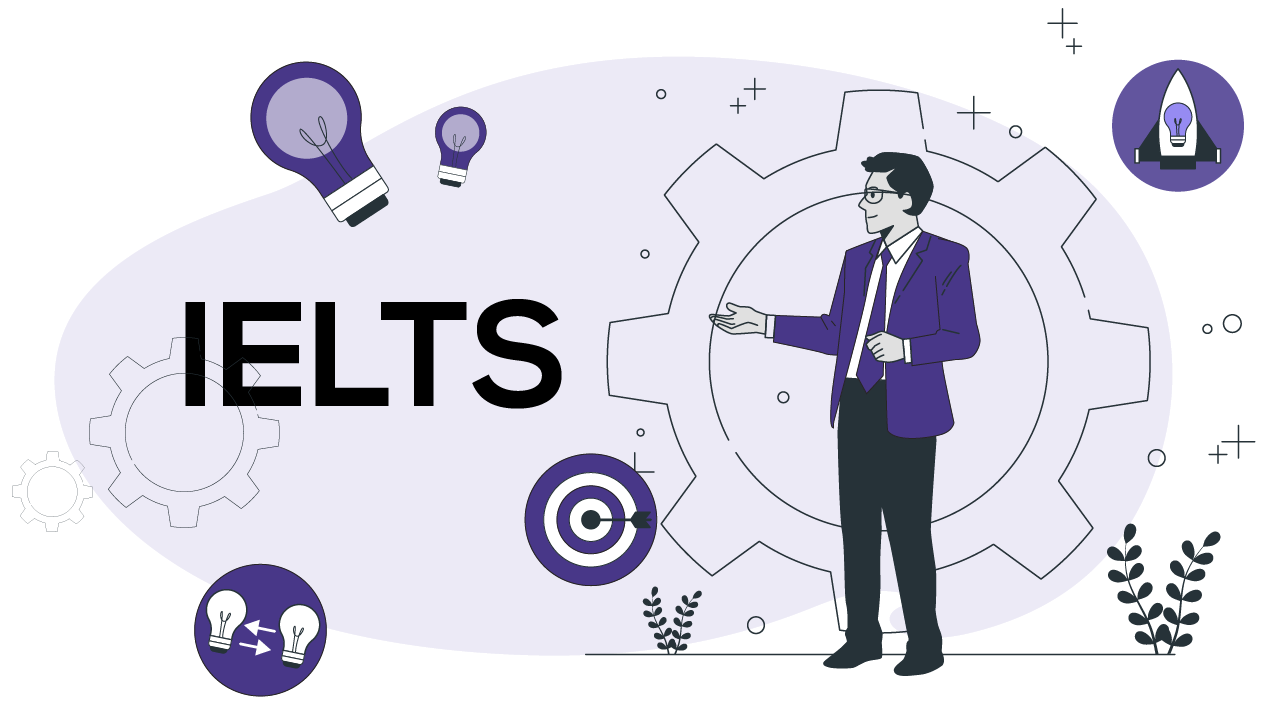
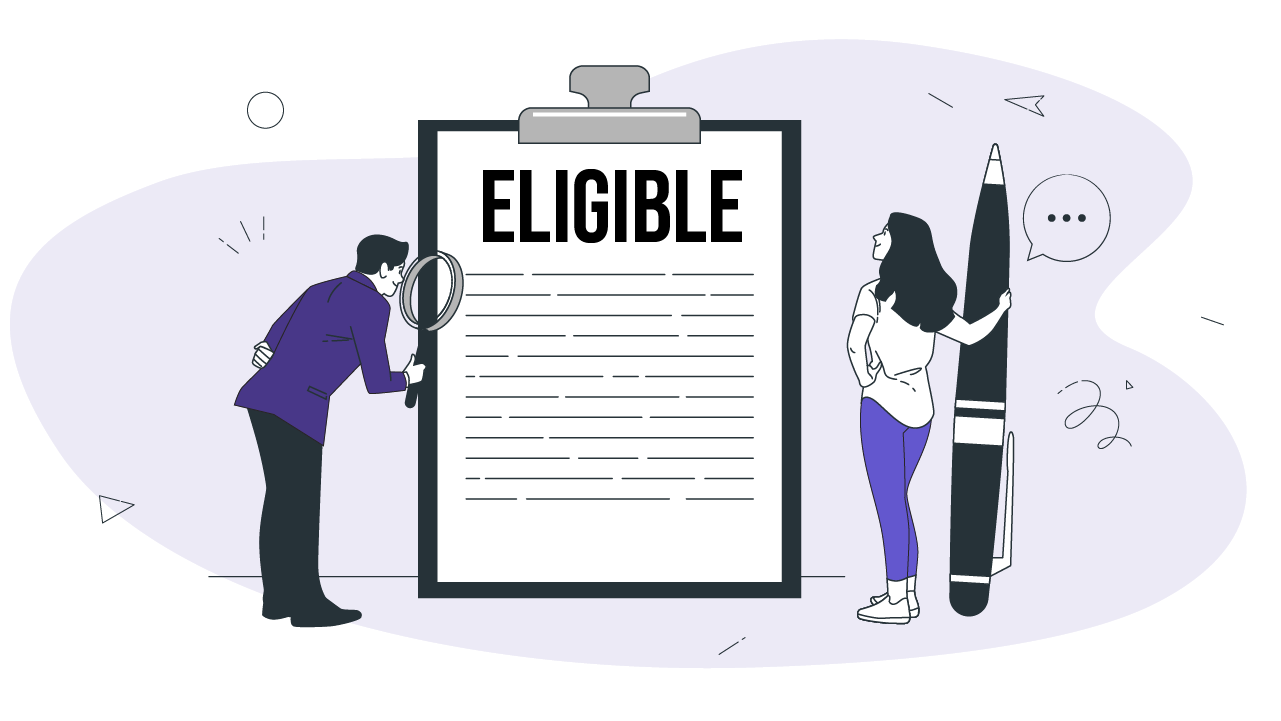
Test Type: Available for both IELTS Academic and General Training.
Test Centres: Only offered at selected IELTS test centres. Check with your local test centre for availability.
Original Test Completion: Candidates must have completed their full IELTS test (all four modules) before opting for a retake.
Initial Test : Candidates first take the full IELTS test (all four modules).
Evaluate Scores : If the score in one module is unsatisfactory, they can opt for a retake.
Retake Registration : Apply for a One Skill Retake through the same test centre or website where the initial test was booked.
Score Update : The retake score for the chosen module will replace the previous score for that module on the candidate’s Test Report Form (TRF).

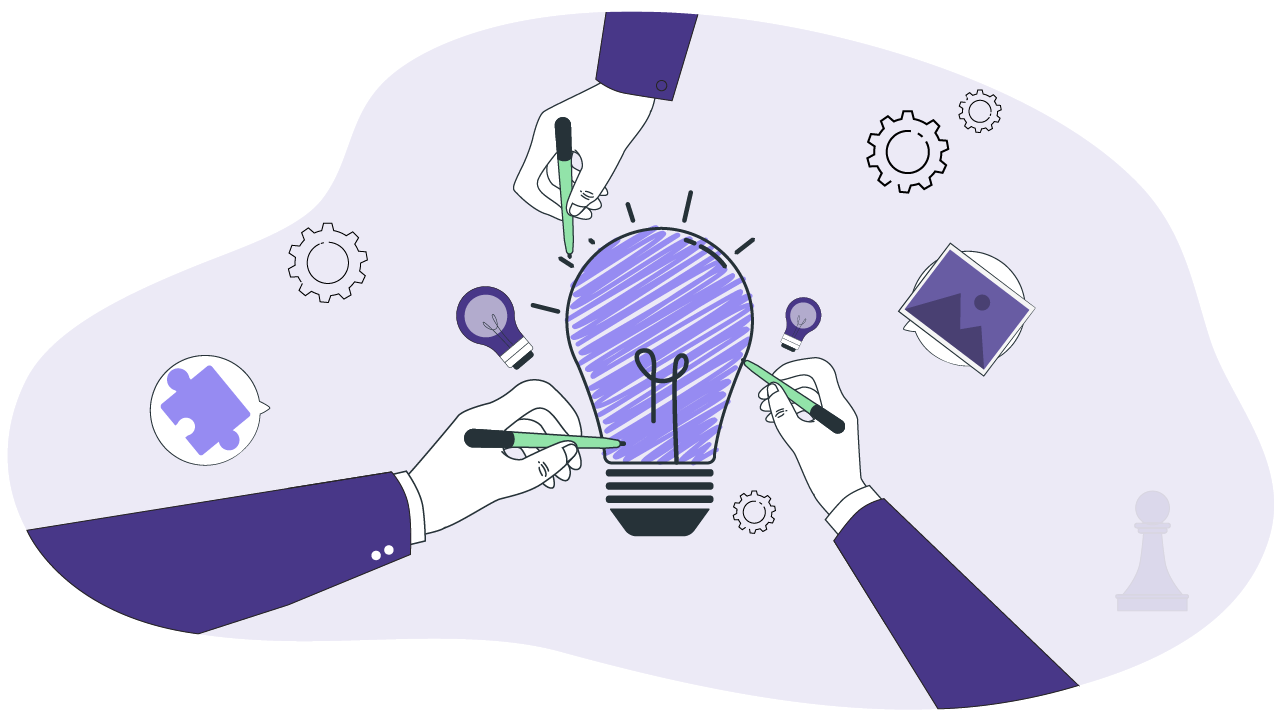
Cost-Effective : Retaking one module is cheaper than retaking the entire test.
Convenient : Focus on improving one skill without worrying about others.
Time-Saving : Reduces preparation time as candidates can concentrate on a single skill.
Score Update : The updated score improves the overall band score if the performance in the retaken module is better.
Check Eligibility : Confirm that the feature is available in your region.
Select Module : Choose the module you want to retake.
Register for the Retake : Follow the process outlined by your local test centre or the IELTS website.
Prepare and Test : Prepare specifically for the selected module and attend the test on the scheduled date.

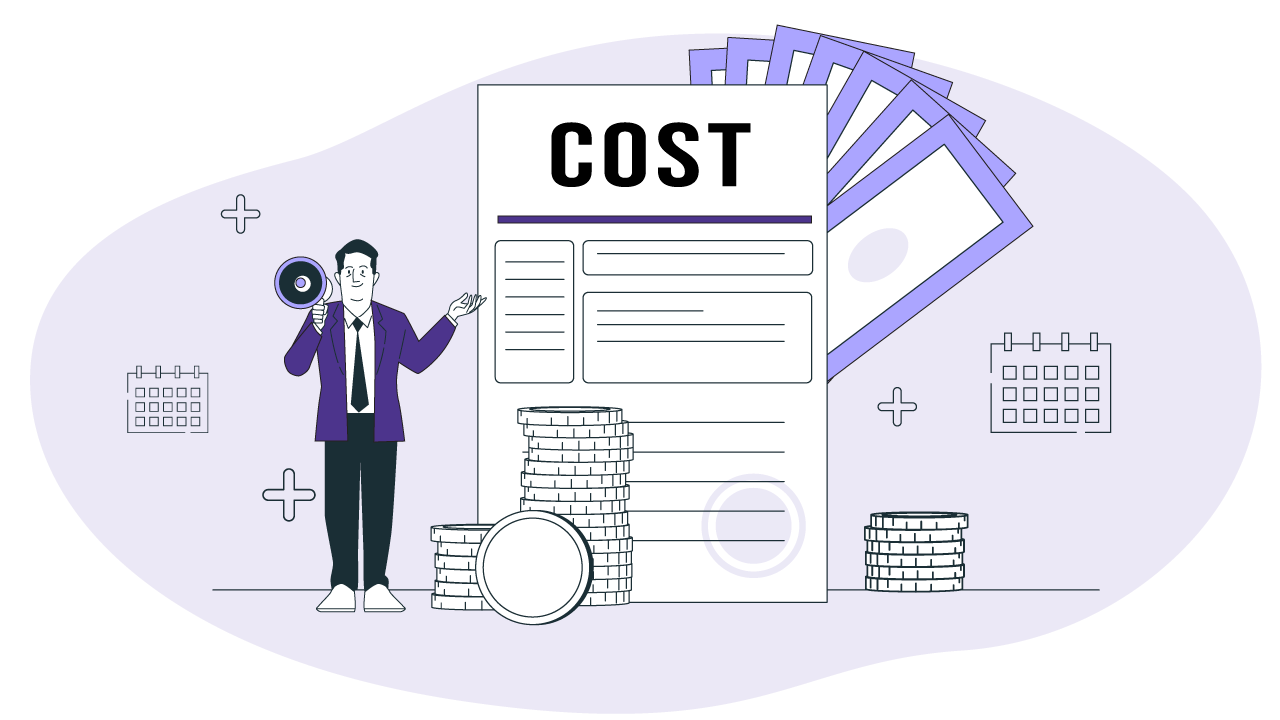
In India, the IELTS One Skill Retake fee is ₹11,300.
It's available for both IELTS on Computer and IELTS on Computer for UKVI tests. The fee is consistent across all cities in India. To book a One Skill Retake, log in to your candidate portal on the official IDP IELTS India website. Please note that you can only book one skill retake per full IELTS test. Ensure to check with the organization you intend to apply to for more information about eligibility requirements.
Availability : Not all test centres globally offer the One Skill Retake option yet.
Timeframe : The retake must be completed within a specific period after the original test. (Check with your test centre for deadlines.)
Score Usage : Some universities or organizations may not accept scores updated through a One Skill Retake. Verify requirements with your intended institution.


Analyze Weak Areas : Identify specific weaknesses within the skill you are retaking.
Use Targeted Materials : Practice using resources focused on the chosen module.
Mock Tests : Take module-specific mock tests to build confidence.
Professional Coaching : Consider enrolling in a coaching program for expert guidance.
IELTS for UKVI refers to a version of the IELTS test that has been specifically approved by the UK Home Office for visa applications. It ensures the test complies with UKVI requirements, making it valid for certain immigration purposes.
This test is similar in content and format to the standard IELTS but is conducted under stricter security protocols and specific guidelines set by the UK government.
There are four types of IELTS for UKVI, depending on the visa requirements:
A. IELTS Academic for UKVI
Purpose :
For higher education at undergraduate or postgraduate levels in the UK or for professional registration.
Test Structure :
Listening (30 minutes)
Reading (60 minutes)
Writing (60 minutes)
Speaking (11–14 minutes)
B. IELTS General Training for UKVI
Purpose :
For migration to the UK for work or training below degree level, and for secondary education or other training programs.
Test Structure :
Listening (30 minutes)
Reading (60 minutes)
Writing (60 minutes)
Speaking (11–14 minutes)
C. IELTS Life Skills
This test is for individuals who need to prove their English speaking and listening skills for certain visa types.
Levels :
A1: For family visas (e.g., spouse or partner visa).
A2: For extensions to family visas (after 2.5 years in the UK).
B1: For indefinite leave to remain (ILR) or citizenship applications.
Test Structure :
Speaking and Listening only: 16–22 minutes.
D. UKVI IELTS Indicator (launched temporarily during the pandemic)
Purpose : Allows candidates to take the test from home when centers were unavailable.
Availability : Limited and not widely accepted anymore.
| Aspect | IELTS | IELTS for UKVI |
|---|---|---|
| Purpose | Academic, General, or personal use | Immigration-specific for the UK |
| Security | Standard procedures | Additional UKVI security protocols |
| Test Report Form | General TRF | Marked with "IELTS for UKVI" |
IELTS for UKVI is required for several visa types depending on the applicant's needs:
A. Study Visas
Student Visa (Tier 4)
Required if studying below degree level or your institution does not have its own Englishproficiency criteria.
Test Type: IELTS Academic for UKVI.
Minimum Scores: Generally 5.5+ overall (depends on institution).
B. Work Visas
Student Visa (Tier 4)
For professionals in sectors like healthcare, engineering, and education.
Test Type: IELTS Academic or General Training for UKVI.
Minimum Scores: Usually 4.0+ (varies by role).
Health and Care Worker Visa
Specifically for healthcare professionals like doctors, nurses, and paramedics.
Test Type: IELTS Academic for UKVI.
Innovator and Start-Up Visas
For entrepreneurs establishing a business in the UK.
Test Type: IELTS Academic or General Training for UKVI.
C. Family Visas
Spouse/Partner Visa (Family Visa)
Test Type: IELTS Life Skills A1.
Required to demonstrate basic English for communication.
Parent Visa
Similar requirements as the Spouse Visa, depending on circumstances.
D. Settlement and Citizenship Visas
Indefinite Leave to Remain (ILR)
Test Type: IELTS Life Skills B1.
British Citizenship Application
Test Type: IELTS Life Skills B1.
E. Temporary Visas
Tier 5 Temporary Worker Visa
Test Type: IELTS General Training for UKVI (if applicable).
| Visa Type | Test Required | Minimum Band Score |
|---|---|---|
| Student Visa | IELTS Academic for UKVI | 5.5+ (varies by institution) |
| Skilled Worker Visa | General/Academic | 4.0+ |
| Spouse Visa | Life Skills A1 | Pass (basic communication level) |
| ILR/Citizenship | Life Skills B1 | Pass |
IELTS for UKVI is conducted at approved Secure English Language Test (SELT) centers only.
Available worldwide.
Fees vary by country, but here are approximate costs:
The IELTS (International English Language Testing System) exam fees in India for 2025 are as follows:
| Test Type | Fee (INR) |
|---|---|
| IELTS Academic or General Training | ₹17,000 |
| IELTS for UK Visas and Immigration (UKVI) | ₹17,250 |
| IELTS Life Skills (A1 and B1) | ₹16,050 |
These fees are consistent across all test centers in India, including Ahmedabad.
The fees apply uniformly to both paper-based and computer-delivered tests.
Practice Materials : Use authentic IELTS study resources.
Mock Tests : Take mock tests to familiarize yourself with the test format.
Coaching : Seek professional training or self-study using reliable platforms.
Always confirm the English language requirements for your visa type before booking the test.
Test results are valid for 2 years from the date of the test.
Ensure you register for the correct version of the test depending on your visa requirements.
Arrive at the test center at least 30 - 45 minutes early.
Carry your original passport and the booking receipt as proof of registration.
Listen carefully to instructions provided by the exam staff.
Use only pencils for the pen and paper based test.
Check your headphones during the listening test to ensure they are working properly.
Stay calm and focused throughout the exam.
Follow all invigilator instructions promptly and respectfully.
Don’t bring prohibited items like mobile phones, smartwatches, or other electronic devices into the exam hall.
Don’t talk or disturb others during the test.
Don’t leave your seat without permission during the test.
Don’t attempt to cheat or copy answers; this will lead to disqualification.
Don’t forget to bring your ID and other necessary materials.